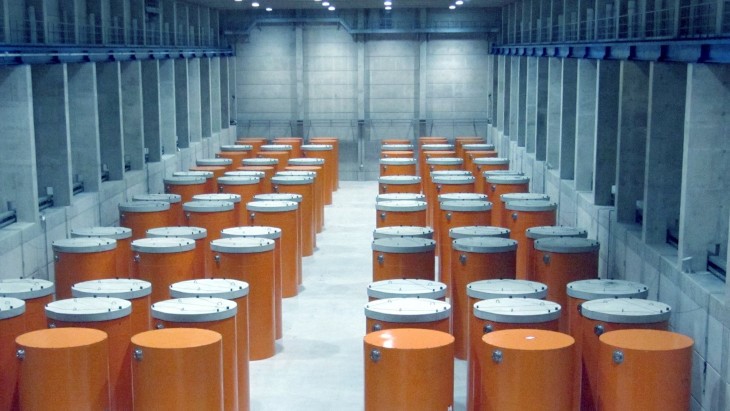The Integrated Review Service for Radioactive Waste and Spent Fuel Management Decommissioning and Remediation (ARTEMIS) review team, conducted a ten day visit to Lithuania during July to review the way the country was seeking to decide where the facility would be sited.
The ARTEMIS team included six international members, from Belgium, Canada, FInland, France, Germany and Slovakia and three IAEA staff members. During their visit they met with representatives of the Ignalina nuclear power plant (INPP), the Ministry of Energy, VATESI - the Lithuanian nuclear regulatory body, the Lithuanian Geological Survey and the Lithuanian Energy Institute as well two consulting companies for the project - IDOM and Posiva Solutions.
Lithuania's Development Programme for the Management of Nuclear Facilities and Radioactive Waste 2021-2030, proposes that long-lived radioactive waste in the country will be stored in interim storage facilities until the end of their operational period when there will be final disposal in a deep geological repository (DGR). The repository - a specially engineered structure several hundred metres underground - is expected to be constructed and commissioned in 2068. Lithuania's radioactive waste and used fuel comes from the Ignalina plant, which stopped operating in 2009, as well as from medicine, industry and research.
The IAEA team commended Lithuania for its early development of the DGR programme and for requesting a peer review of the site selection process at an early stage.
ARTEMIS team leader, Jean-Michel Hoorelbeke, former Senior Advisor Foresight and Strategy at the French National Agency for Radioactive Waste Management, said: "By adequately considering the outcome of the present review, Lithuania will be in a good position to continue the safe development of the DGR project."
Audrius Kamienas, acting director general of INPP, said: "The implementation of the deep repository project in Lithuania is a complex, step-by-step process that has been going on for several decades. Drawing on advanced deep repository programmes in other countries and guided by the insights of competent experts, we are applying useful know-how throughout the project management process. We must be ready to move on to the next phases of the project once we are confident that what we are doing today meets all applicable international safety standards and requirements and is in line with global best practice for such projects."
The IAEA review team's recommendations for improving the site selection process include the government establishing "intermediate milestones" to the final site selection and allocating responsibilities for decision-making. It also suggests INPP develops a "high-level document describing the overall site selection process" and together with the government establish a formal public engagement process as early as possible. VATESI could "consider developing comprehensive guidance on geological disposal facilities in support of national requirements on siting process".
The completed report will be delivered to the Lithuanian government in about two months.
Two large RBMK reactors at the Ignalina nuclear power plant provided 70% of Lithuania's electricity until their closure in 2004 and 2009 as a condition of the country joining the European Union. The power plant is being decommissioned by Ignalina NPP, which has removed fuel from the reactors and placed it into dry casks for interim storage at the site. The decommissioning process is due to last until 2038.





_52351.jpg)


_15863.jpg)






